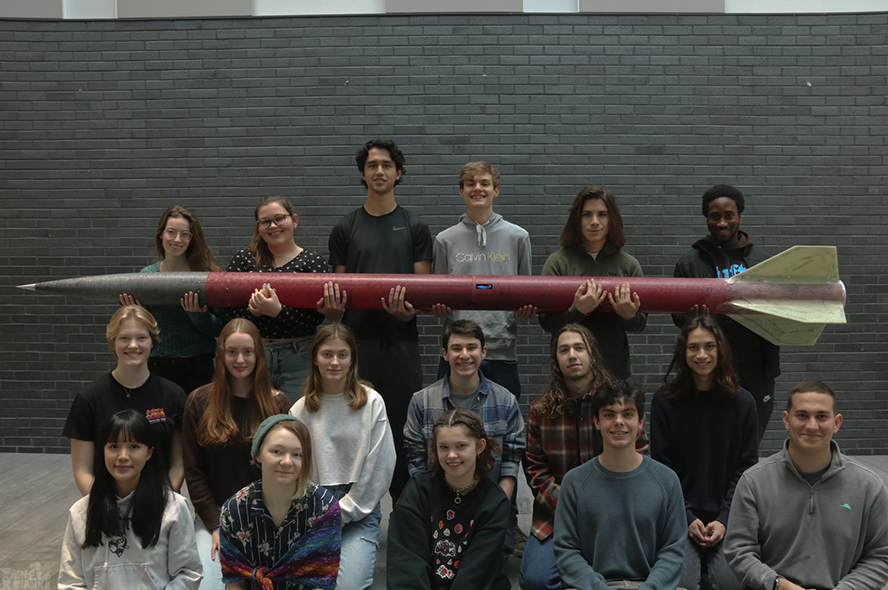Successful test launch for Tufts rocketry team

For the first time in the club’s history, the student group Tufts Students for the Exploration and Discovery of Space (SEDS) is building a competitive rocket to participate in the Spaceport America Cup. Each year, nearly 6,000 undergraduate and graduate students from colleges and universities around the world gather in New Mexico to compete in rocket launching to 10,000 and 30,000 feet. The Tufts SEDS rocket, known as the CubeSat-Adorned Rocketry Masterpiece (CARM), will be participating in the 10,000 feet category in June. “Three years ago, the Tufts rocketry team had nearly died out. Going from that to the world’s most prestigious rocketry competition in such a short period of time is an incredible testament to the passion, hard work, and dedication of the entire team,” said Rocketry Team Lead Nico Moldovean, E25.
CARM recently took its first test flight. “It was a success in many ways, as CARM broke several team records and was recovered intact,” said Mechanical Team Lead Nicholas Martin, E24. Made from fiberglass, the six-inch diameter, 12-foot-tall rocket is built to carry a prototype CubeSAT which another Tufts SEDS team is developing. CubeSATs, also known as nanosatellites, are small satellites that can be built with commercially available materials. Tufts SEDS’ CubeSAT aims to detect and identify space debris.
The rocketry team has found success with their early tests, but there is still work to be done before the rocket is ready for the competition. The team recently completed their second Critical Design Review, where they received feedback on their design from students, faculty members, and experts in the field. Moving forward, the team will conduct another test launch to gather more data and thoroughly validate the rocket’s updated design before the competition, followed by a final Flight Readiness Review.
Tufts SEDS is associated with SEDS-USA. The organization welcomes students of all disciplines and experience levels, providing hands-on opportunities for students to develop their technical and project-based skills. With five distinct project teams – rocketry, CubeSAT, astrophotography, weather balloon, and radio telescope – Tufts SEDS offers a rich experience for students who are passionate about all aspects of space.
Department:
Mechanical Engineering